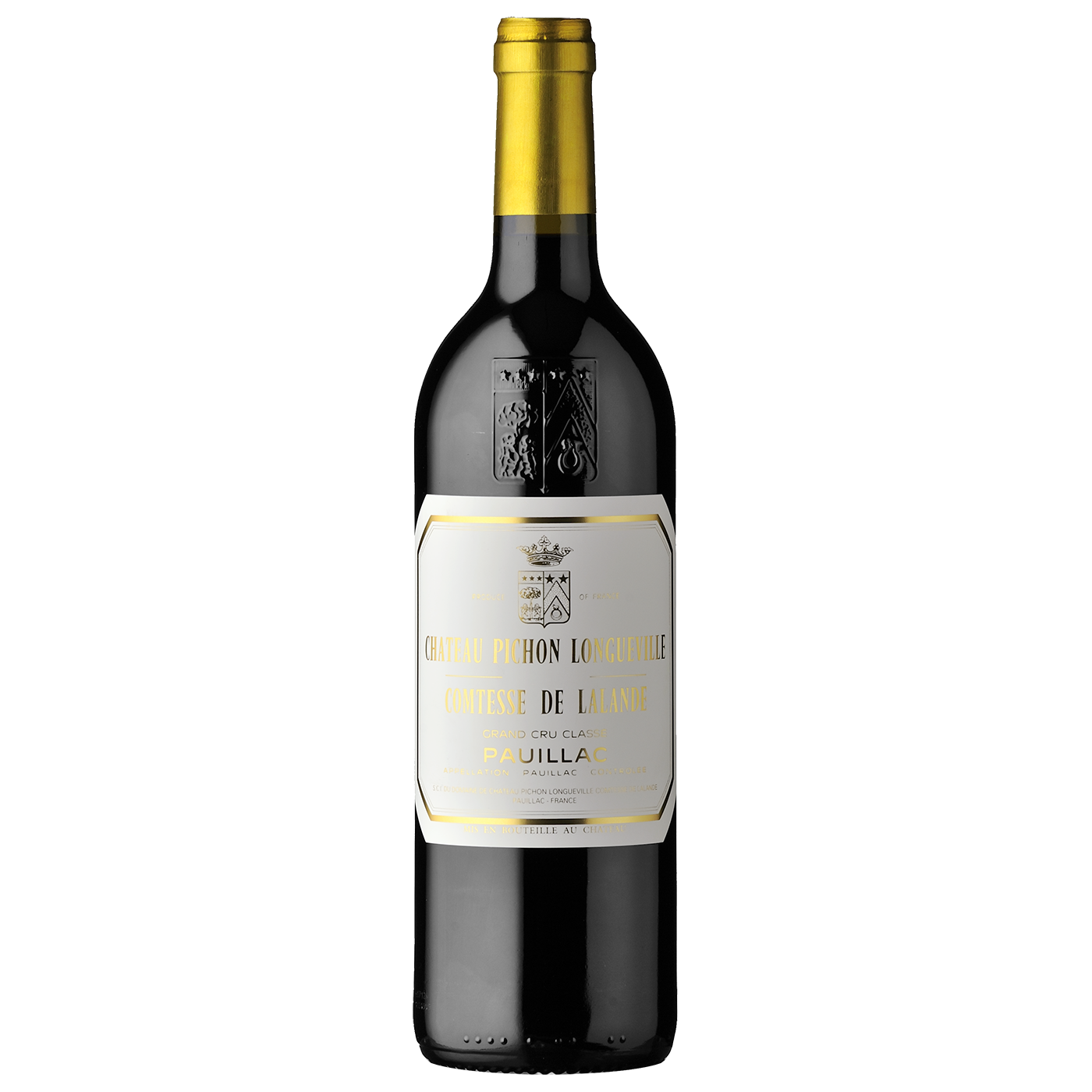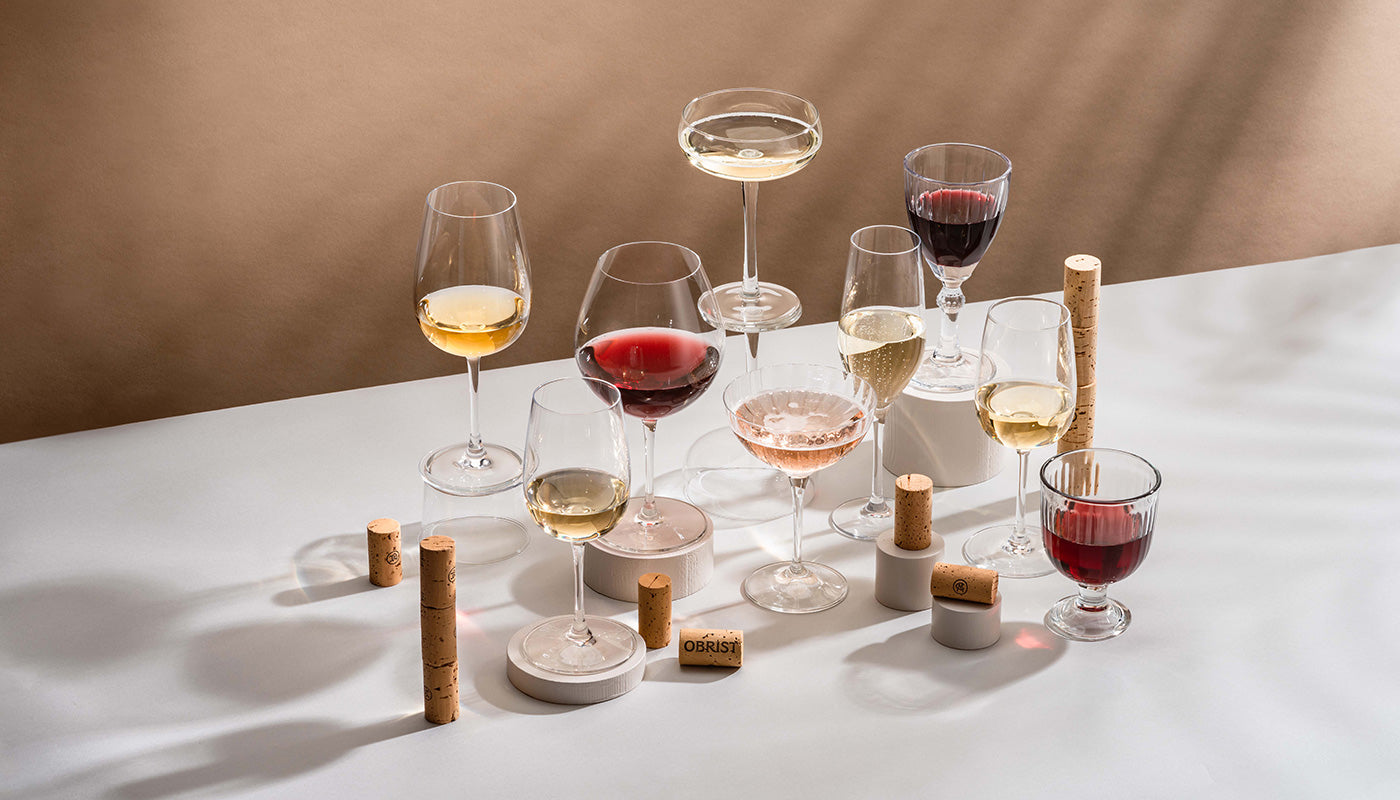Château Pichon Longueville Comtesse de Lalande 2019
Vin rouge | 2e Cru Classé, Pauillac AC
Château Pichon-Longueville Comtesse de Lalande veille sur un vignoble d’exception, idéalement situé proximité de la Garonne. Les crus de Château Pichon-Longueville Comtesse de Lalande offrent une superbe définition du terroir de Pauillac.
Impossible de charger la disponibilité du service de retrait
-
France Bordeaux
-
Cabernet Sauvignon
Merlot
Cabernet Franc
Petit Verdot 5 - 25 ans
-
14.15% vol.
-
98 100Yves BeckPichon Comtesse assume complètement son cépage maitre : le Cabernet Sauvignon. Il nous rappelle, avec un style imposant, que les notes dites « végétales » peuvent clairement être positivées ! Quelle fraîcheur et quelle authenticité. Notes fruitées intenses avec des parfums de cassis, de myrtilles et de rafraîchissantes notes d’eucalyptus. En bouche le vin confirme les aptitudes du nez ; il est ample, friand, puissant, séduisant et compact. Juteux et suave grâce aux tannins friands et à la structure racée. Dans cette succession logique, la finale ne peut qu’être intensément fruitée et persistante. Un Pichon Comtesse aux nombreuses facettes qui incarne plusieurs traits de caractère puisqu’il est puissant, subtile, élégant et racé ! Un cancre discipliné en quelque sorte. 2025-2054.
-
98 100James SucklingCrazy aromas of sweet tobacco and black fruit. Tar and lead pencil, too. Blackcurrants and blackberries. Solid core of fruit and ripe tannins here. It’s full-bodied and chewy. Extremely long. Fascinating wine. Structure with elegance. Extremely creamy and very, very melted together. A classically proportioned wine. 71% cabernet sauvignon, 23% merlot, and 6% cabernet franc.
-
98 100Robert Parker's Wine AdvocateA blend of 71% Cabernet Sauvignon, 23% Merlot and 6% Cabernet Franc (with no Petit Verdot this year), the 2019 Pichon Longueville Comtesse de Lalande came in at an alcohol of 14.15% and a pH of 3.7. Medium to deep garnet-purple in color, it sails out of the glass with a stunning array of Black Forest cake, warm cassis and wild blueberries scents with underlying hints of Morello cherries, redcurrant jelly, pencil shavings, menthol and aniseed with a touch of charcoal. The medium-bodied palate packs a lot of fruit into an elegant package, featuring very finely grained, silt-like tannins and seamless freshness, finishing long with loads of lingering mineral and exotic spice accents.
-
98 100DecanterA serious, muscled Pichon Comtesse that grabs you from the first nose. The width and texture is evident, feeling both more plush and supple in its fruit character. It's elegant and balanced but packed full of textured raspberries, blueberries and cassis, juicy, with a rise on the finish and clear tannic grip. Very Pauillac in style, more so than the 2018 with great length. Not as structured as the 2016 or the 2010 but not far off and this is easily one of the wines of the vintage. Its heft shares some similarities to its neighbour Latour, which is not always the case in this most feminine of Pauillac wines. Closes down pretty quickly on the finish, suggesting the initial rich fruit is a hint of what is to come but that it will take its time to show itself in bottle. Tasted twice, four weeks apart and it delivered both times. No Petit Verdot in this vintage. Drinking Window 2027 - 2040.

Envoyer une copie à l'adresse :
En saisissant votre adresse e-mail, vous acceptez qu'elle soit vue par theWinefamily et qu'on puisse vous contacter.
Email is required
Something went wrong. Please try again later.
Impossible de charger la disponibilité du service de retrait
Pourpre violacé.
Bouquet intense, complexe, bien marqué par son terroir, aux arômes de myrtilles et de framboises, soutenus par des notes de cèdre et de graphite.
Entrée en bouche friande et dense, ample et élégant, tanins solides, aux grains fins, belle fraîcheur soutenant le fruit.
Ravioles de champignons aux truffes, oie ou pigeonneau rôtis, agneau de lait au piment d'espelette, gigot de chevreuil aux marrons, brie farci aux noix, moelleux au chocolat servi avec de la glace au thym.
Température de service : 16 - 18 °C
Le Château Pichon Longueville de Lalande se situe entre la Gironde et l'océan Atlantique. L'exceptionnelle richesse de l'appellation Pauillac est la conséquence d'un sol pauvre et avare, constitué de graves sur argiles favorisant un excellent drainage. Ce sont ces graves garonnaises qui offrent une telle qualité aux vignobles du Médoc.
Fermentation thermorégulée en cuves inox, cuvaison de 18 à 24 jours, élevage en barriques de chêne dont 80% de bois neuf.
Bouchon en liège
Caisse



